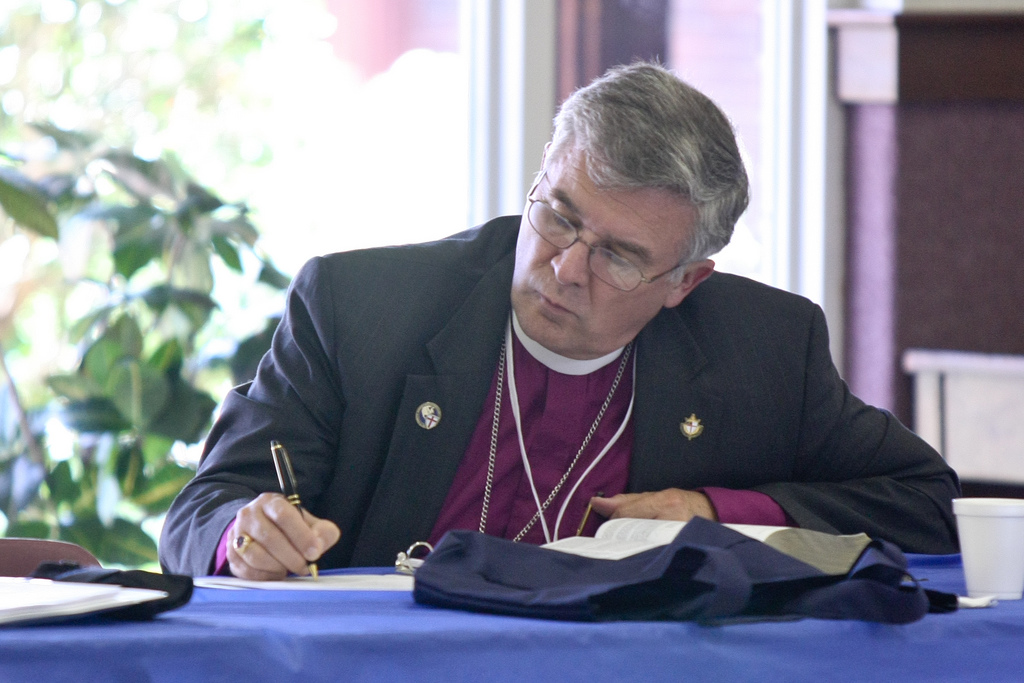The following letter first appeared in the May 17, 2013 edition of the AAC’s Weekly Update. Sign up for this free email here.
Dear Christian Friends,
It has now been a few weeks since Judge Dunning in Orange County, California issued a ruling in the case of the Episcopal Diocese of Los Angeles against my former parish, St. James Church, Newport Beach. The ruling, in my estimation, completely miscarries justice to the extreme, but then I have a vested interest in the case since the former bishop, Frederick Borsch, gave me and the parish the disputed letter which waived all claims on the property on 32nd Street. Relying on that, we raised large amounts of money and built beautiful buildings to the glory of God for the people to worship in and be sent forth for ministry.
Alan Haley has a helpful analysis of the state of affairs after the ruling and the problems for everyone that the ruling raises. I would love for you to read Alan’s article, although his writings do suppose a certain level of familiarity with legal principles. I would like to quote a short portion of his recent post on the subject:
So according to Judge Dunning’s May 1 ruling, the trust imposed on all Episcopal parishes in California may only be dissolved in the manner by which it was imposed in the first place – by a canon duly enacted by General Convention. Do you understand now the huge impact this ruling could have if it is affirmed on appeal?
According to it, since no sale of any California property owned by an Episcopal parish ever received any release of the Dennis Canon by General Convention, then all of those properties that have been marketed and sold since 1980 – parking lots, rectors’ residences, and auxiliary properties, to say nothing of church buildings themselves – are still subject to the Dennis Canon trust, no matter what any diocesan bishop or standing committee purported to allow. They were not the General Convention.
To reach her… conclusion, therefore, that no one diocesan or standing committee may waive or release the Dennis Canon on behalf of any Diocese, or on behalf of the national Church, Judge Dunning has managed at one stroke to cloud the titles of hundreds, perhaps thousands, of pieces of property sold and conveyed by Episcopal parishes in California since 1980.
And that is just one problem with her seriously flawed decision, which relies upon circular reasoning and deliberate misreadings of parish governing documents, as well. The decision is not only a travesty of justice, but as I say, it should make title companies all across California fear for all of the various policies they have issued to buyers of church property since 1980.
In Haley’s analysis, if the Dennis Canon can only be lifted or modified by action of the General Convention, then all Episcopal property sales, transfers, etc. since the date of the Dennis Canon have a defective title in California. No Standing Committee, Bishop or other agency other than the full General Convention of the Episcopal Church could grant permission for the claim on real property to be extinguished. He goes on to say,
“The impact of this ruling on the Diocese of Los Angeles itself has probably not yet dawned upon Bishop Bruno and his allies. It means that the Diocese will not be able to offer free and clear marketable title to any of the properties it has confiscated over the years from so many of its former parishioners: St. Luke’s in the Mountains, St. David’s, All Saints … and now St. James. Unless and until the Diocese can obtain an amendment to the Dennis Canon from General Convention, the Court’s ruling means that all those properties remain impressed with a trust in favor of ECUSA, which cannot be modified, altered, waived or released in any way. Moreover, lenders will now not loan against ECUSA parish properties for purchase or construction unless General Convention agrees to subordinate its Dennis Canon to the loan in every case.”
The judge’s ruling actually puts in question the clear title for the sale of the old diocesan office center to a real estate consortium which occurred prior to the election of Bishop Borsch in 1988, which raised part of the money for the new Diocesan Center at Echo Park.
The judge’s ruling cries out for an Appeal on several levels and is finally a decision that no one can really live with. St. James has had to go to the Court of Appeals and the California Supreme Court twice already, and now perhaps a third time, and they still haven’t been granted their day in open court. If you think that this judgment is a travesty that needs setting right, send St. James a few dollars, or a lot for that matter, because I think they need to stay in court not just for their sake, but for the sake of justice itself. St. James needs your encouragement in this!
Blessings and peace in Christ Jesus,
The Rt. Rev. David C. Anderson, Sr.
President and CEO, American Anglican Counci


